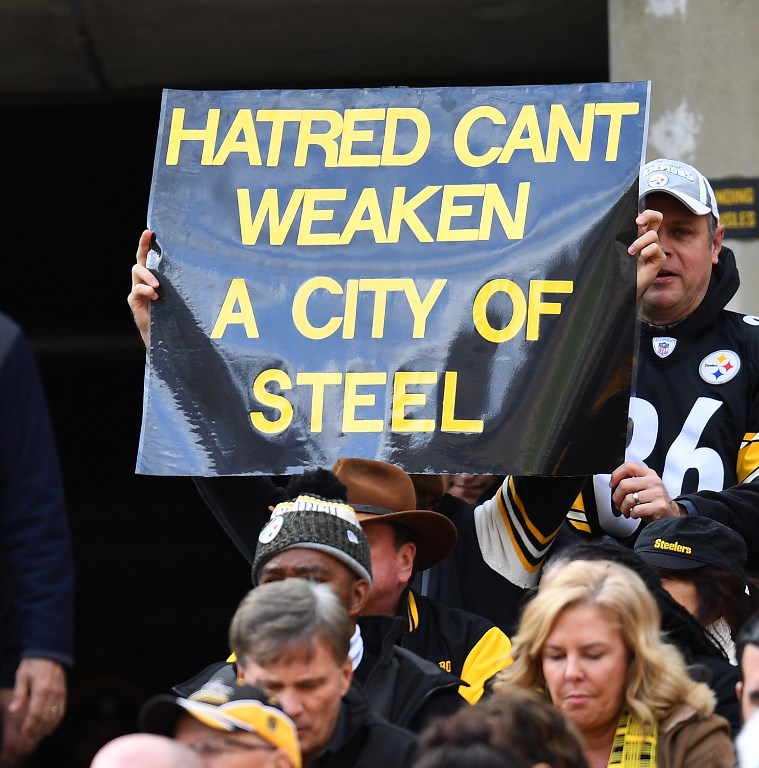By ERIC CORTELLESSA
Robert Bowers faces 29 charges, including murder and hate crimes, but lacked any connection to a State Department-designated terrorist group.According to the Anti-Defamation League, Robert Bowers carried out what is likely the deadliest attack against the Jewish community in American history when he opened fire inside a Pittsburgh synagogue on Saturday, killing 11 congregants and injuring four police officers. Bowers’ social media accounts were littered with anti-Jewish hatred and conspiracy theories. He also screamed “All Jews must die” when he confronted law enforcement after committing the massacre.
His shooting spree at the Tree of Life synagogue was an unprecedented act of political anti-Semitic violence on American soil.
But it was not, according to the US government, an act of domestic terrorism.
On Saturday afternoon, federal prosecutors announced that Bowers would face 29 charges, including 11 counts of using a firearm to commit murder and several counts of hate crimes, such as obstructing the exercise of religious beliefs resulting in death and obstructing the exercise of religious beliefs resulting in bodily injury to a public safety officer.

A fan holds up a sign to honor the victims of the shooting at the Tree of Life synagogue during the game between the Pittsburgh Steelers and the Cleveland Browns at Heinz Field in Pittsburgh, Pennsylvania, on October 28, 2018. (Joe Sargent/Getty Images/AFP)
“There is no federal crime labeled domestic terrorism,” Department of Justice spokeswoman, Sarah Isgur Flores, told The Times of Israel on Sunday.
While the US Patriot Act, passed in 2001 by the George W. Bush administration, following the September 11 attacks, includes a working definition of “domestic terrorism,” no crime was ever created to match such a designation.
The law describes domestic terrorism as an attempt to “intimidate or coerce a civilian population; to influence the policy of a government by intimidation or coercion; or to affect the conduct of a government by mass destruction, assassination, or kidnapping.”
The most common terrorism-related charge in US courts is providing “material support” to one of the State Department-designated foreign terrorism organizations. There were roughly 300 such prosecutions from 2001 to 2011 that resulted in indictments related to jihadist terror or national security charges, according to the Center on Law and Security.
While Bowers’ motives seem plainly evidenced through his social media accounts and verbal proclamations at the scene of the massacre, he acted alone and not on behalf of any terror group.
Alex Fields is suspected of driving his car into a crowd at a white nationalist rally in Charlottesville, Virginia, last year, killing a counter protester. Fields is being charged with a number murder charges by the state of Virginia.
Dylann Roof was convicted on federal and state crimes, including hate crimes, for killing nine African-Americans at a Charleston, South Carolina church in the summer of 2015. He has been sentenced the death penalty.

No comments:
Post a Comment